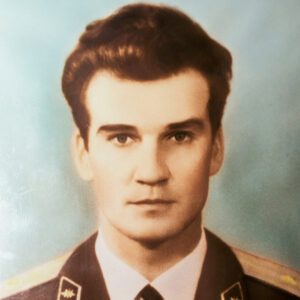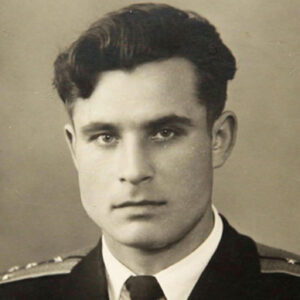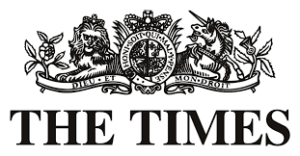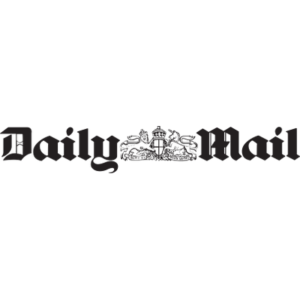The Future of Life Award 2019
Celebrating the contributions of Matthew Meselson
On April 9th, Dr. Matthew Meselson received the $50,000 Future of Life Award at a ceremony at the University of Boulder’s Conference on World Affairs. Dr. Meselson was a driving force behind the 1972 Biological Weapons Convention, an international ban that has prevented one of the most inhumane forms of warfare known to humanity. April 9th marked the eve of the Convention’s 47th anniversary.
Meselson’s long career is studded with highlights: proving Watson and Crick’s hypothesis on DNA structure, solving the Sverdlovsk Anthrax mystery, ending the use of Agent Orange in Vietnam. But it is above all his work on biological weapons that makes him an international hero.
“Through his work in the US and internationally, Matt Meselson was one of the key forefathers of the 1972 Biological Weapons Convention,” said Daniel Feakes, Chief of the Biological Weapons Convention Implementation Support Unit. “The treaty bans biological weapons and today has 182 member states. He has continued to be a guardian of the BWC ever since. His seminal warning in 2000 about the potential for the hostile exploitation of biology foreshadowed many of the technological advances we are now witnessing in the life sciences and responses which have been adopted since.”
Meselson became interested in biological weapons during the 60s, while employed with the U.S. Arms Control and Disarmament Agency. It was on a tour of Fort Detrick, where the U.S. was then manufacturing anthrax, that he learned the motivation for developing biological weapons: they were cheaper than nuclear weapons. Meselson was struck, he says, by the illogic of this — it would be an obvious national security risk to decrease the production cost of WMDs.
The use of biological weapons was already prohibited by the 1925 Geneva Protocol, an international treaty that the U.S. had never ratified. So Meselson wrote a paper, “The United States and the Geneva Protocol,” outlining why it should do so. Meselson knew Henry Kissinger, who passed his paper along to President Nixon, and by the end of 1969 Nixon renounced biological weapons.
Next came the question of toxins — poisons derived from living organisms. Some of Nixon’s advisors believed that the U.S. should renounce the use of naturally derived toxins, but retain the right to use artificial versions of the same substances. It was another of Meselson’s papers, “What Policy for Toxins,” that led Nixon to reject this arbitrary distinction and to renounce the use of all toxin weapons.
On Meselson’s advice, Nixon had resubmitted the Geneva Protocol to the Senate for approval. But he also went beyond the terms of the Protocol — which only ban the use of biological weapons — to renounce offensive biological research itself. Stockpiles of offensive biological substances, like the anthrax that Meselson had discovered at Fort Detrick, were destroyed.
Once the U.S. adopted this more stringent policy, Meselson turned his attention to the global stage. He and his peers wanted an international agreement stronger than the Geneva Protocol, one that would ban stockpiling and offensive research in addition to use and would provide for a verification system. From their efforts came the Biological Weapons Convention, which was signed in 1972 and is still in effect today.
“Thanks in significant part to Professor Matthew Meselson’s tireless work, the world came together and banned biological weapons, ensuring that the ever more powerful science of biology helps rather than harms humankind. For this, he deserves humanity’s profound gratitude,” said former UN Secretary-General Ban Ki-Moon.
Meselson has said that biological warfare “could erase the distinction between war and peace.” Other forms of war have a beginning and an end — it’s clear what is warfare and what is not. Biological warfare would be different: “You don’t know what’s happening, or you know it’s happening but it’s always happening.”
And the consequences of biological warfare can be greater, even, than mass destruction; Attacks on DNA could fundamentally alter humankind. FLI honors Matthew Meselson for his efforts to protect not only human life but also the very definition of humanity.
Said Astronomer Royal Lord Martin Rees, “Matt Meselson is a great scientist — and one of very few who have been deeply committed to making the world safe from biological threats. This will become a challenge as important as the control of nuclear weapons — and much more challenging and intractable. His sustained and dedicated efforts fully deserve wider acclaim.”
“Today biotech is a force for good in the world, associated with saving rather than taking lives, because Matthew Meselson helped draw a clear red line between acceptable and unacceptable uses of biology”, added MIT Professor and FLI President Max Tegmark. “This is an inspiration for those who want to draw a similar red line between acceptable and unacceptable uses of artificial intelligence and ban lethal autonomous weapons.
To learn more about Matthew Meselson, listen to FLI’s two-part podcast featuring him in conversation with Ariel Conn and Max Tegmark. In Part One, Meselson describes how he helped prove Watson and Crick’s hypothesis of DNA structure and recounts the efforts he undertook to get biological weapons banned. Part Two focuses on three major incidents in the history of biological weapons and the role played by Meselson in resolving them.
Publications by Meselson include:
- “The replication of DNA in Escherichia coli,” detailing the experiment Meselson designed to prove Watson and Crick’s hypothesis of DNA structure and replication
- “The Sverdlovsk anthrax outbreak of 1979,” outlining the conclusions of Meselson’s investigation into the outbreak
- “Preliminary Report — Herbicide Assessment Commission of the American Association for the Advancement of Science” and “Background Material Relevant to Presentations at the 1970 Annual Meeting of the AAAS,” explaining Meselon’s recommendation against the use of Agent Orange in Vietnam
- “Yellow Rain” and “The Yellow Rain Affair: Lessons from a Discredited Allegation,” describing Meselson’s investigation into allegations of chemical weapons use in Laos and Kampuchea
History of the Award
The Future of Life Award is a $50,000 prize given to an individual who, without receiving much recognition at the time, has helped make today dramatically better than it may otherwise have been. We are confident that there are many unsung heroes out there, who have done incredible work to ensure a beneficial future of life on Earth. We need your help to ensure they get the recognition and honor they deserve.
2018 Winner
Stanislav Petrov
One of the closest calls occurred thirty-five years ago, on September 26, 1983, when Stanislav Petrov chose to ignore the Soviet early-warning detection system that had erroneously indicated five incoming American nuclear missiles. With his decision to ignore algorithms and instead follow his gut instinct, Petrov helped prevent an all-out US-Russian nuclear war, as detailed in the documentary film “The Man Who Saved the World”.
The 2018 Future of Life Award to Stanislav Petrov was covered in Vox, Daily Mail, and The Daily Star.
2017 Winner
Vasili Arkhipov
Vasili Arkhipov single-handedly prevented nuclear war during the height of the Cuban Missile Crisis. Arkhipov’s submarine captain, thinking their sub was under attack by American forces, wanted to launch a nuclear weapon at the ships above. Arkhipov, with the power of veto, said no, thus averting nuclear war.
The 2017 Future of Life Award to Vasili Arkhipov was covered in The Times, The Guardian, The Independent, and The Atlantic.











